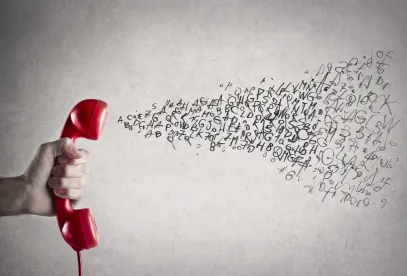For some time the Federal Communications Commission’s Chairman, Tom Wheeler, has been calling on wireless and wireline carriers alike to take more aggressive steps to assist consumers in preventing unwelcome or unsolicited calls and spam messages. The FCC’s July 10, 2015 Declaratory Ruling, for example, contained a discussion focused on resolving the question of whether carriers had a legal obligation to transmit all calls without blocking. In the Matter of Rules & Regulations Implementing the Telephone Consumer Protection Act of 1991, 30 FCC Rcd 7961, ¶¶ 152-63 (July 10, 2015). The Declaratory Ruling affirmed that nothing in the Communications Act or FCC rules or orders prohibits carriers from offering or implementing call blocking technologies for those customers who choose to use them. Id.
Existing opt-in technologies and mobile apps can permit a consumer to block individual phone numbers or categories of calls, often depending on whether they originate from carrier lists, or crowd sourced “black lists” of numbers. So long as consumers are informed of and accept the risk of inadvertent call blocking, such as potentially missing public safety alerts, the FCC last summer determined that both “telemarketer” category calls and individual numbers should be within the range of acceptable blocked calls so long as they are determined by the consumer. Id. at ¶ 160. While some carriers expressed concern about the imperfect and at times imprecise nature of existing technologies, the FCC, even while acknowledging the legitimacy of the concern, urged carriers to offer blocking technologies to consumers. Thus, while carriers are not required by FCC rule to offer consumers call blocking tools, the FCC last summer indicated it would continue to monitor steps that VOIP providers and carriers were taking to facilitate blocking. Id. at ¶ 163.
On July 22, 2016, FCC Chairman Wheeler issued a letter to the CEOs of major wireless and wireline phone companies calling for greater collective action on providing more comprehensive robocall-blocking services to consumers. He also sent letters to intermediary carriers that connect robocallers to the consumer’s phone company, reminding them of their responsibility to help facilitate the offering of blocking technologies. AT&T within days of the Chairman’s letter announced that its Chairman and CEO would convene a new industry “Robocalling Strike Force” the mission of which will be to accelerate the availability of caller ID verification standards and identifying other means to make call blocking more effective.
In response, Chairman Wheeler applauded AT&T for its initiative and acknowledged that meaningful control over the calls and texts will require collective action by the entire industry. To that end, the FCC Chairman called on this new industry strike force to develop an action plan for development of more robust robocall-blocking solutions and to make an effort to produce conclusions on how that might be accomplished within 60 days.





 />i
/>i

